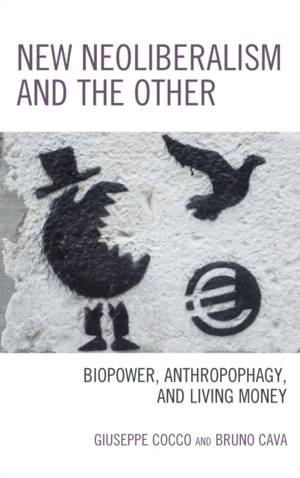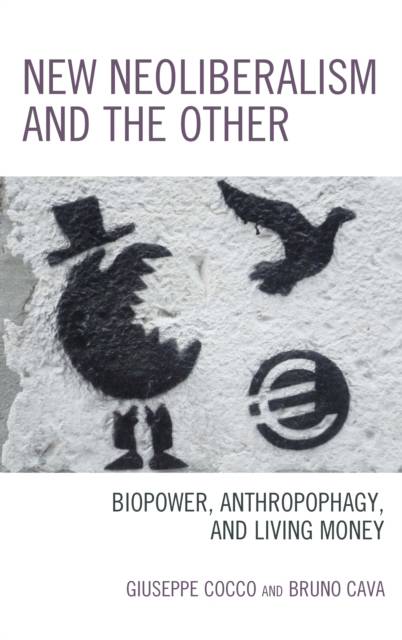
- Afhalen na 1 uur in een winkel met voorraad
- Gratis thuislevering in België vanaf € 30
- Ruim aanbod met 7 miljoen producten
- Afhalen na 1 uur in een winkel met voorraad
- Gratis thuislevering in België vanaf € 30
- Ruim aanbod met 7 miljoen producten
Zoeken
New Neoliberalism and the Other
Biopower, Anthropophagy, and Living Money
Giuseppe Cocco, Bruno Cava
Hardcover | Engels
€ 220,45
+ 440 punten
Omschrijving
The exhaustion of neoliberal globalization is marked by three great tendencies or inflections: the first is the scornful failure of the South-American attempt to construct a neo-developmentalist exit; the second is the increasingly unavoidable Chinese-effect macro and micro dynamics within globalization; the third is the combination of austerity policies and monetary emissions (Quantitative Easing) that characterize, for instance, the financial conduct of the Central European Bank. The dramatic failure to renew traditional state interventionism in the sphere of Pink Tide in Latin American politics--in particular with the violent recession of the biggest economy on the Latin American continent, Brazil--shows and confirms that the escape from neoliberal regulation does not pass through the return of the traditional role of the state. At the same time, the Chinese economy came to play a double role. On one hand, it appears to represent the great and irreversible novelty of neoliberal globalization, particularly when our point of perspective is South America. While almost nothing remains of the legacy of the center-left-leaning regimes, the last South American decade appears to have genuinely been a Chinese decade. The Chinese advance is seen, especially by voices of the critical globalization studies, as a new "outside" of Empire, as something that stands for an alternative path, even if it is nothing more than an "old new" outside. Meanwhile, the role played by the financial sector continues to be regarded per se as the fundamental problem of contemporary capitalism. For some, this is a case of a deviation from an otherwise "good capitalism, the misleading result of a fictitious and unreal sphere (as opposed to the sphere of material economy, of good old bosses and hard workers), while for others, it is a case of one of the moral characteristics of Western civilization: infinite debt, and capitalism happens to be its modern drift.
Specificaties
Betrokkenen
- Auteur(s):
- Uitgeverij:
Inhoud
- Aantal bladzijden:
- 288
- Taal:
- Engels
Eigenschappen
- Productcode (EAN):
- 9781498526661
- Verschijningsdatum:
- 19/02/2018
- Uitvoering:
- Hardcover
- Formaat:
- Genaaid
- Afmetingen:
- 152 mm x 229 mm
- Gewicht:
- 544 g

Alleen bij Standaard Boekhandel
+ 440 punten op je klantenkaart van Standaard Boekhandel
Beoordelingen
We publiceren alleen reviews die voldoen aan de voorwaarden voor reviews. Bekijk onze voorwaarden voor reviews.







